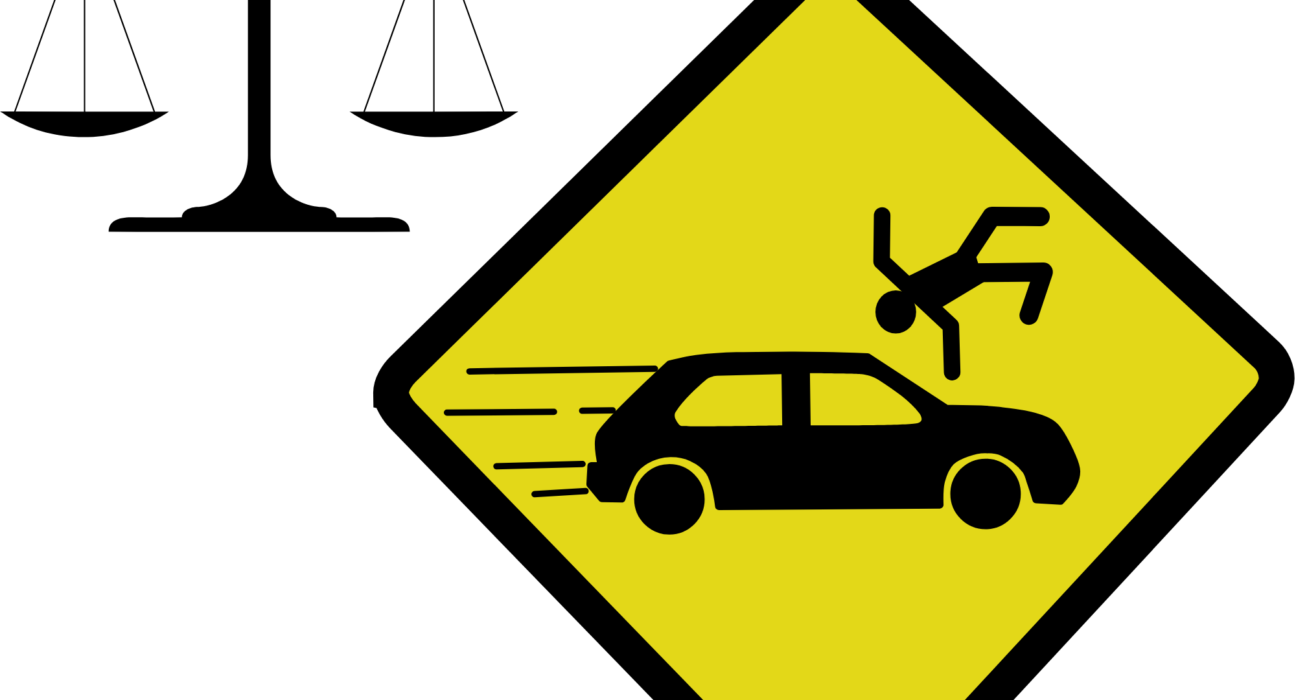Simran Jain, a 4th-year law student has written this Article on “Defences of accident under section 80 of IPC”.
Introduction
“Accident”, is a word which is used in everyday life to indicate a course of events over which a person had no control over and which could not be avoided despite due diligence and care. Section 80 talks about accidents as a general defence and which can lead to avoidance of criminal punishment and liability if established fully before a court of law. The law does not intend to punish a man for the things over which he could possibly have no control. Actus non facit reum nisi mens sit rea only works as a reminder that criminal law in order to punish seeks some kind of guilty mental element to punish a person. This implies that a person who does not intend and cannot even contemplate the occurrence of a certain course of events, cannot be held responsible for the happening of that event.
Accident under section 80 of the Indian Penal Code falls under the chapter of general exceptions. This article was made with the objective of keeping in mind the students of law who are nowadays in dire need of material which simplify the law than complicates it.
Accident under Section 80 IPC
The word accident means a sudden unintended and misfortune act by chance without any apparent cause. It is considered one of the general defences under criminal law for lack of mens rea, as a vital part of committing a crime, at the time of action. Mere an act without a guilty mind doesn’t constitute a crime.
This section says that “Nothing is an offence which is done by accident or misfortune, and without any criminal intention or knowledge in the doing of a lawful act in a lawful manner by lawful means and with proper care and caution.”
How accident comes under Chapter 4 of IPC?
Section 80 of the IPC treats accidents as general defences which makes him immunity from criminal liability as well as the punishments. According to the law, it doesn’t intend to punish anyone for things over which he could possibly have no control. A mere action doesn’t constitute a crime unless it is clubbed with a guilty mind at the time of action.
An accident falls under excusable defence which is treated as a general defence of IPC, as there is no criminal intention while occurring an accident. As it is widely proved that intention is a vital part of constituting a crime. The word ‘intention’ is nowhere defined in IPC. But words like voluntarily, deliberately, willfully and etc, are used to get the approximate meaning of word intention.
There are four elements of crime namely: Person, Mens Rea, Actus Reus and Injury. According to mens rea, it’s the most important element to be proved that a crime has been committed. It means that it was the intention of the accused to purposely / willingly and along with proper pre-planning cause harm to a person or property.
It is derived from a well-known maxim Actus Reus Non-Facit Reum Nisi Mens Sit Rea which means an act doesn’t render a man guilty of a crime unless his mind is guilty.
Section 80:
Accident in doing a lawful act- Nothing is an offence which is done by accident or misfortune, and without any criminal intention or knowledge in the doing of a lawful act in a lawful manner by lawful means and with proper care and caution.
An accident must be unintentional and unexpected. It implies to happening that cannot be predicted by a prudent man. According to Section 80, any act done without criminal intent or with knowledge with proper care and precaution while doing a lawful act in a lawfu[1]l manner with lawful means, will constitute an accident. However, if there is no connection between the harm and the act, then there may be no liability for the harm caused.
Case Laws:
In State of Orissa v. Khora Ghasi (1978) Cri LJ 1305, in this case, the accused killed the victim by shooting an arrow with the bona fide belief that he was shooting a bear that entered into the fields to destroy his crops, the death was said to be an accident.
If the accident happens during an unlawful act, the provision of Section 80 of IPC wouldn’t apply. In Jogeshwar V. Emperor (24 Cri LJ 789), the accused was given a fist blow to the victim but accidentally hit his wife who was holding her 2-month-old child, the blow hit the head of the child which resulted in his death. It was held that even though the child was hit by accident, the act was not lawful, not done by lawful means or in a lawful manner.
Necessity
Defence of necessity applied, when a person in order to prevent greater harm from taking place, commits a crime or a criminal act during an emergency situation, wherein the accused can escape criminal liability because his/her act was justified as he/she had the intention to prevent a situation which would cause greater harm as compared to the criminal act committed by him or her.
Essential elements of Section 80 IPC
1. Act should be done by accident.
2. Act should be without any criminal intention or knowledge.
3. While doing a lawful act in a lawful manner by lawful means.
4. With proper care & caution.
Case Laws :
Lawful Act in a Lawful Manner by Lawful
It is important that the act which was being done was lawful, in a lawful manner, and by lawful[2] means. To understand, firstly let’s see the case of Tunda v. Rex 1950 Cr. LJ. 402 ( All . HC ) The accused and the deceased were friends who were wrestling fans and were engaged in a wrestling bout. He preferred an appeal to the Allahabad High Court, which held that when the accused and deceased agreed to wrestle with each other, there was an implied consent on each part to suffer any accidental injuries.
The injury was accidental and there was no foul play on the part of the accused and hence is to be given the benefit under section 80 and section 87. Lawful act in a lawful manner by lawful While wrestling, the deceased’s head accidentally came in contact with a concrete platform resulting in injuries to the skull and eventual death. The accused was tried under section 304 but later on, convicted under section 304A.
Lawful act in a lawful manner by lawful Hence, besides the defence of section 87 (consent ), section 80’s benefit was also given due to the fact that there was no foul play by the deceased and both friends impliedly agreed to accidental injuries while going for a wrestling bout with each other
With Proper Care and Caution
An act done without any regard for proper care and caution would not get the defence of Section 80. In these cases, a person does an act with total disregard for the consequences which may ensue from such carelessness.
Bhupendra Sinha vs. the State of Gujarat ( SC 1998 SCC 603 )
The accused and the deceased were police constables and head-constable. They were posted to protect a dam site. The accused killed his colleague in the night by firing at a close range without knowing the identity of his target. The accused pleaded the defence of Sec. 80. The trial court convicted him under Section 302.
The Honorable Supreme Court confirmed the conviction given by the High Court under Section 302. And held that the accused acted without proper care and caution. That the Act of the accused could not come under an accident or misfortune. Supreme Court further said that not was it a lawful act, so he was not allowed the defence of Section 80.
State Government of M.P. vs. Rangaswamy (AIR 1952 Nag. 268):-
The officers thought that it was the Heyna. It was common that no people would be moving into that area and in particular during that rainy time. The accused, one of the officers, fired at the moving object. The result was the death of a human being. The Madhya Pradesh High Court held that the accused was protected under Sec. 80. ( Section 80 of IPC – Accident)
Jageshwar vs Emperor
In this case, one[3] person was beating another person. During the fight, the wife of the person getting beaten while holding a child in her hand interfered between the two people. A punch from the person hitting hits the head of the child by accident and the child died.
The accused took the plea of Accident. The court held that in this case cannot take a plea for an accident even though he had no intention to hit the child as he was doing an illegal act and the death of the child was connected with the illegal act. He was not convicted for murder but he was convicted for hurt.
State vs Rangaswami:–
For instance, A, while shooting a jackal in the jungle with an unlicensed gun, by accident kills a man who was hiding behind a bush, he would not be liable for murder. The fact that A used an unlicensed gun would not preclude him from claiming the protection of section 80 (Section 80 of IPC – Accident), because the circumstances under which the act was done were such as to negate the existence of mens rea.
In-State of Orissa Vs. Khoraghasi, 1978:-
In this case, the accused a tribal in a forest with bona fide intention aimed an arrow at an animal. But a person (human being) was hit by the arrow and died. The Orissa High Court allowing the defence of accident under Section 80 acquired the accused.
In Shabir Khan V. Crown (AIR 1931):-
In this case, a big party consisting of some hundred men went out for shooting pigs. And when a boar rushed towards the accused he fired at her, but he missed the boar. And the shot struck the leg of a member of the party which resulted in his death. It was held that the death was caused by an accident and was not the result of a rash or negligent shooting.
Mahadev Vs. State of Madhya Pradesh:-
The steering wheel of the tractor suddenly breakdown as a result of which the tractor got free and out of control. This incident caused death to a person on the road, The death was clearly caused by an accident.
Conclusion
The general defences enshrined under IPC are of paramount importance in establishing the parameters of criminal offences. Criminal liability makes a person liable for acts which are prohibited by law. Indian Penal Code took cognizance of the fact that all acts are not to be punished. The acts devoid of mens rea are exempted from criminal liability. Criminal law deals with the different punishments for various crimes mentioned in the Indian Penal Code, of 1860. Though the person commits an offence, he may not be held liable for an offence he committed. It is because every offence is not absolute, they have certain exceptions.
These exceptions are provided under Chapter 4 of IPC. Through this chapter, the law bestows certain defences which escape the accused from criminal liability and its punishments. These defences are based on the principle that though a person commits an offence, he will not be held liable. It is because there will not be a guilty intention at the commission of the act. According to accident, mentioned under Section 80 of the Indian Penal Code, it is considered an excusable act which escapes one from the responsibility of crime for the acts devoid of mens rea, at the end of action, are exempted from criminal liability.
Also Read: General Exemption of Private Defence, Click Here!
References
[1] https://www.legalservicesindia.com/law/article/1070/5/Accident-under-The-Indian-Penal-Code-1860
[2] https://www.mondaq.com/india/crime/882586/general-criminal-defences-mistake-of-fact-accident-and-necessity–part-ii
[3] https://www.thenextadvisor.com/section-80-of-ipc-accident-important-case-laws/






Leave feedback about this